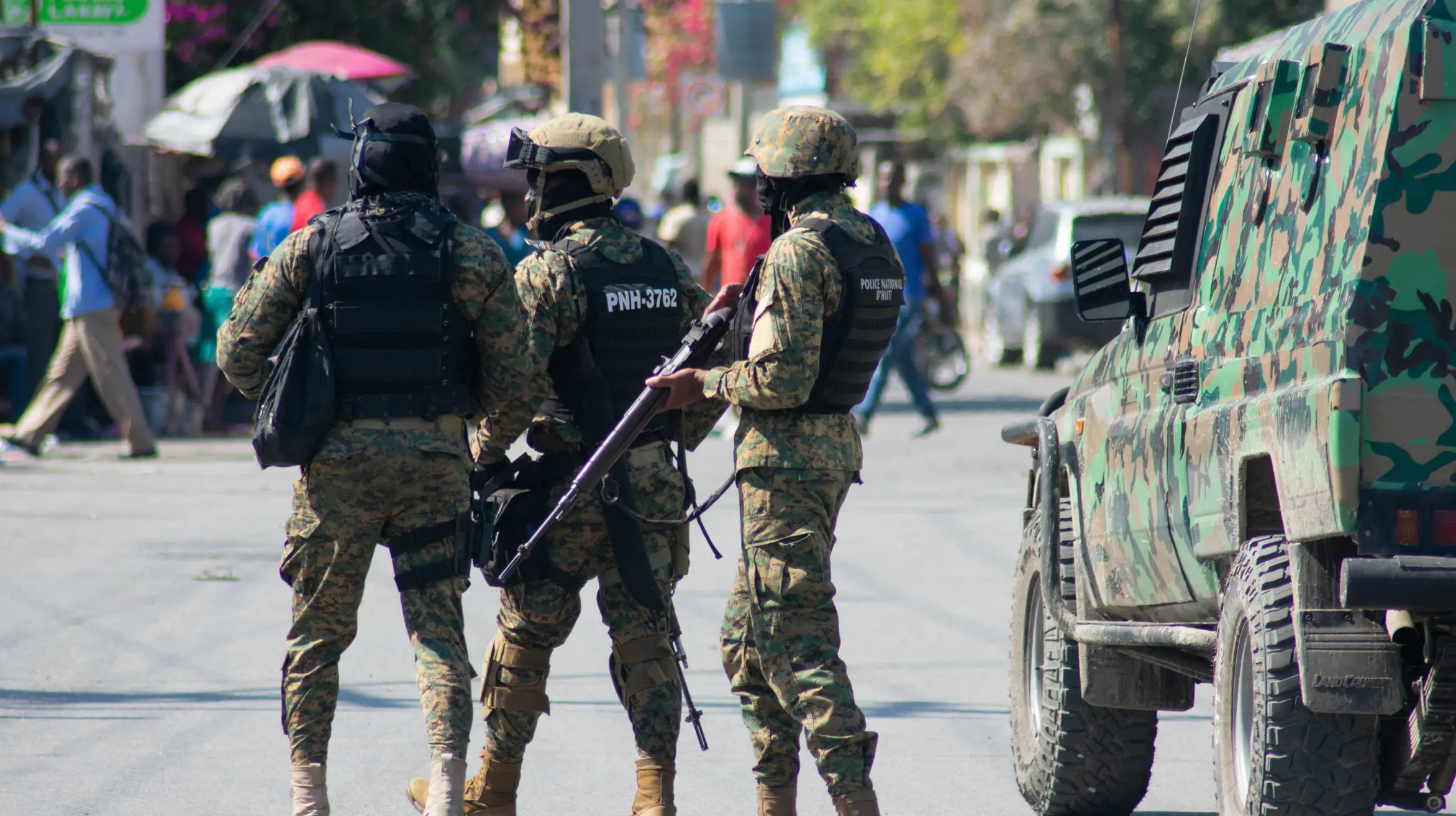USA (Transatlantic Today)—In a restrictive move to address Haiti’s rampant security problems, the Biden administration has given the green light to a $60 million military aid package to curb rampant gang violence in the country. This report looks at the potential impact of this decision, particularly the strategic and tactical implications for the Multinational Security Assistance Force (MSS) operating in Haiti.
Following the assassination of President Jovenel Moïse in 2021, Haiti experienced an increase in gang violence that challenged the authority of the Haitian National Police (PNH) and jeopardised the country’s stability. As a result, a UN-backed multinational security operation, led by Kenya and supported by other countries such as Jamaica and the Bahamas, was formed to restore peace and support local law enforcement agencies.
Military Assistance Analysis
The approved aid package includes a range of military resources, including small arms, armored vehicles such as Humvees and MaxxPros, sniper rifles, riot gear, ammunition and surveillance drones. This influx of military equipment is expected to have several critical impacts:
According to Rezonodwest, the provision of armored vehicles and advanced weaponry will strengthen the tactical capabilities of the Haitian National Police, Emerging Army and MSS forces and provide essential protection against heavily armed gangs in urban combat scenarios.
The integration of surveillance drones into the package will improve the situational awareness of the MSS and facilitate real-time intelligence gathering and more strategic planning and execution of operations against gang strongholds.
The visible improvement in equipment and capabilities promises to have a deterrent effect against gang activity, with the potential psychological impact of a well-equipped security force playing a role in stabilizing volatile situations
Strategic Implications
The aid package could serve as a diplomatic lever for Haiti’s Transitional Presidential Council (TPC) to secure further commitments from the United States and the international community, particularly in terms of development aid and governance support. However, caution is advised against perceptions of excessive foreign intervention.
Strengthening MSS capacities could mitigate the risk of violence spilling over into neighboring countries. Collaborative efforts with neighboring nations through regional security and development mechanisms are imperative for broader regional stability.
While American military assistance may not garner unanimous support within Haiti, concerns about repeating historical mistakes of foreign intervention must be addressed. Thus, accompanying measures should focus on strengthening Haitian institutions and tackling root causes of instability like corruption, poverty, and impunity.
The Biden administration’s swift action to expedite military aid to Haiti through MSS marks a significant milestone in the international response to the crisis. However, its efficacy hinges on renewed commitments to Haitian security forces, improved governance, and concerted efforts to address underlying structural issues. Long-term success depends on subsequent political, economic, and social interventions, offering Haiti a crucial opportunity to rebuild its institutions and foster lasting peace and stability.


























